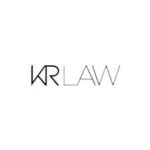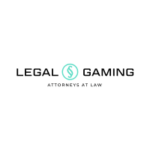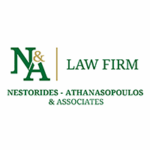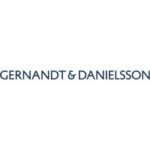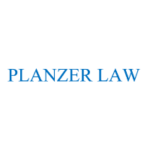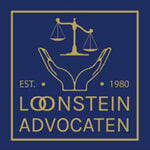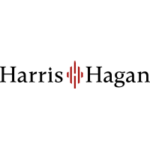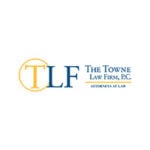-
What is the legal definition of gambling?
The Law on Games of Chance does not define gambling as such. However, it does define games of chance and the specific types authorized under the Law on Games of Chance.
According to Article 2 of the Law on Games of Chance (Official Gazette of RS, nos. 18/2020, 94/2024), games of chance are defined as games in which a participant places a stake in order to win money, items, services or rights, and the gain or loss depends exclusively or predominantly on chance or an uncertain event rather than participant’s skill or knowledge.
This includes the following key elements:
- Placing a stake – a participant must place a stake in order to participate in games of chance.
- Possibility to win based on chance or an uncertain event – participants opportunity to win should be determined by a chance or an uncertain event, rather than their skill or knowledge.
- Prizes – they can be money, items, services or rights.
Exceptions:
There are several explicit exceptions from the definition of the games of chance:
- Skill or knowledge games: In the same Article 2 of the Law on Games of Chance, it is clarified that the definition does not encompass any public games where participants compete with their knowledge or skill from various areas, where the final result predominantly depends on participants results.
- Games for entertainment: Article 3 of the Law on Games of Chance specifies that the video games played on computers, simulators, video machines, pinball machines or similar devices played by inserting a coin or money as well as pools, snooker, darts or similar games played with prior payment, and where there is no possibility of a prize (as specified above) will not be considered as games of chance.
As this definition is used for all types of games of chance, it should be looked in a wider context, having in mind Catalogue of the types of games of chance allowed in Serbia. Catalogue is published by the Ministry of Finance and they have a final say on what will be considered a game of chance.
Games of chance are divided into three categories for which specific licences are issued:
- Classical games of chance – defined as games of chance in which a higher number of participants are playing with the intent of being sole or partial winner of a predetermined prize pool;
- Special games of chance – defined as P2P games, or games played against the operator, with the intent of winning a prize determined by the stake amount;
- Prize competitions (raffles) – defined as games organised by a company or a self-employed person for marketing or other purposes, in which all participants are given an equal opportunity of winning from a predetermined list of prizes in items or services.
-
What legislation applies to gambling? Please provide a summary of the legal/regulatory framework.
The key legal framework includes:
Primary: Law on Games of Chance (Official Gazette of RS, nos. 18/2020, 94/2024)
Related: Law on Prevention of Money Laundering and Terrorism Financing (Official Gazette of RS, nos. 113/2017, 91/2019, 153/2020, 92/2023, 94/2024 i 19/2025)
– Law on advertising (Official Gazette of RS, nos. 6/2016, 52/2019)
Secondary: By-laws and rulebooks issued by the Games of Chance Administration under the Ministry of Finance, covering technical standards, reporting, and record-keeping obligations.
Taxation and levies are governed by both the Law on Games of Chance as well as tax regulations in Serbia.
-
Which body/ies regulate gambling?
The competent authority specifically for gambling is the Games of Chance Administration, a special unit within the Ministry of Finance of the Republic of Serbia.
It is responsible, including but not limited, for:
- Submitting a proposal of the Catalogue of the types of games of chance;
- Issuing and suspending licenses and/or approvals for organising games of chance;
- Determines the fees for licences and/or approvals;
- Supervising compliance with the applicable regulations, including AML, in the area of games of chance;
- Assesses the value of the prize pool for prize competitions (raffles)
- Participates in adoption of new regulations within its area of competence;
-
Are licences available? If so: a) What is the duration of a licence? b) What types of licences are available? c) Are there different types of licences for B2C and B2B operators? d) Do software suppliers need to be licensed?
Yes, Serbia has a licensing regime regulated by the aforementioned regulations.
Types of licences available:
- classical games of chance (lotteries, bingo, tombola, keno); Licence for both land-based and remote operations is given exclusively to “Državna lutrija Srbije“, a state lottery company.
- special games of chance (casino games, gaming machines, betting), and
- prize competitions (raffles)
- Quotas: Licenses for land-based special games of chance operated in a casino setting is limited to 10 (ten). No other licence have quota established by regulations.
- Duration: Licenses for special games of chance are issued for land-based or remote gambling operations. They are generally issued for the duration 10 years and can be renewed subject to meeting specific requirements including payment of fees.
- B2C vs B2B: The Serbian regime is predominantly structured around B2C operators; B2B suppliers are not separately licensed.
-
Are any types of gambling products prohibited?
Yes. Only games of chance contained in the Catalogue of the Types of Games of Chance are allowed. Game rules for each game have to be approved by the Games of Chance Administration. All other types are prohibited. Unlicensed online gambling and games organized without approval are unlawful.
-
What is the headline application procedure? Please include any eligibility and other application requirements, including approximate application costs and any need to establish a local presence.
- Local presence: Establishing a Serbian legal entity is mandatory. In practice, this means an incorporation of a company in Serbia, as an LLC, is required.
- Capital requirements: Law on games of chance lists specific capital requirements for any entity applying for a licence. All amounts are stated in euros but have to be paid in RSD (Serbian Dinar) based on the official exchange rate published by the National Bank of Serbia. The applicant to cumulatively fulfil request for capital requirement for each individual licence. Certain Licences are required to also submit a bank guarantee or a deposit upon obtaining a licence.
- Fees: Operators pay both a one-off licensing fee and continuous concession fees.
Licence Capital requirements Application fee Monthly fees Land-based special games of chance (casino) 1.000.000,00 euros Determined by bidding (minimum of 1.000.000,00 euros) Minimum set divided per the type of games: – P v House: 2.000,00 euros multiplied by the amount of tables played against the house in the month
– PvP (poker, and other): 25% of the value of the stakes that the operator keeps;
– PvP (tournaments): 25% of the difference between the participation fee and prize fund, where the base cannot be less than 5% of the total participation fees received by players
Land-based special games of chance (slot machines) 250.000,00 euros 50 euros a month per slot machine 15% on the difference between total value of stakes and winnings, and not less than multiply of 100 euros and the number of slot machines applied for in that month Land-based betting shops 250.000,00 euros 200 euros a month per betting shop 15% on the difference between total value of stakes and winnings, and not less than multiply of 1000 euros and the number of slot machines applied for in that month Remote special games of chance 250.000,00 euros 10.000,00 euros a month – 15% on the difference between total value of stakes and winnings
– For live casino games, monthly fees are set at 25% on the same base as above
Minimum monthly fees are set at 50.000,00 euros a month.- Server requirements: For remote gambling licences, its technical setup, main or backup, has to be located in Serbia and accessible to the Games of Chance Administration.
- Fit and proper checks: Applicants and their management/owners are subject to fit and proper checks. They must submit police clearance certificates showing no relevant criminal convictions (for economic crimes, money laundering, etc.) in the past ten years. The application for a land-based casino license specifically requires evidence of the operator’s industry experience – notably, an applicant for a casino must either itself, or its majority shareholder, have at least 5 years of experience operating a casino in an internationally recognized jurisdiction. This effectively means new entrants need a partnership or background in casino gaming elsewhere. For other licenses, prior experience is not explicitly required by law, but a solid business plan is (the Administration will vet the business plan for at least a 3-year projection)
-
Do individuals within the business need to be personally licensed or authorised? If so, please provide headline requirements.
There are no personal licences for key individuals. However, as mentioned above, fit and proper checks are conducted for each director, shareholder and beneficial owner.
In terms of employees: casino staff, croupiers, betting shop cashiers, etc. do not have individual gambling licenses. However, the law does impose certain training and qualification obligations. All employees of a gambling operator who have direct contact with players must be trained in responsible gambling practices and the prevention of problem gambling before starting work. For instance, casino and betting staff should be trained to recognize signs of gambling addiction and enforce entry restrictions on minors. Additionally, employees must meet age requirements (staff usually must be adults) and cannot themselves be barred persons. Notably, the law prohibits any employee of a gambling operator from participating in the games organized by that operator (e.g. a betting shop employee cannot place bets in that company’s shops).
-
Is advertising of gambling permitted and, if permitted, how is it regulated?
Yes, gambling advertising is permitted in Serbia, but it is subject to specific regulations aimed at promoting responsible marketing. The Law on Games of Chance and the general Advertising Law together set the framework for what gambling ads can and cannot do. In principle, licensed gambling operators are allowed to advertise their products and services, provided they comply with the following key rules:
No Targeting Minors: Advertising of gambling must not be directed at minors (under 18), and it is prohibited in media aimed at minors. For example, gambling ads cannot be shown in children’s magazines, on school premises, or during TV/radio programs intended primarily for underage audiences.
Mandatory Warning Messages: All gambling advertisements must include a clear notice about the prohibition of underage play and a responsible gambling warning. The law explicitly requires that any advertising or promotion of games of chance contain a message such as “Participation in games of chance is not allowed to persons under 18” and information regarding the prevention of addiction. Typically, ads carry a slogan for responsible gambling and a helpline or similar. Failing to include these warnings is a violation that can result in fines.
Content Restrictions: Advertisements should not be misleading or suggest that gambling is a way to solve financial problems. While Serbian law doesn’t list exhaustive ad content guidelines in the gambling law itself, the general advertising standards apply. This means ads must be truthful and not violate public morals. Specifically for gambling, the spirit of the law is that ads should not encourage excessive gambling or present gambling as risk-free. The Administration for Games of Chance can provide guidance and has the authority to sanction misleading gambling ads under general consumer protection laws.
Location and Timing: Advertising is not allowed in certain places. In addition to youth-oriented venues, it’s forbidden to advertise games of chance in establishments where that might be inappropriate (for instance, you cannot advertise gambling inside schools, hospitals, or religious institutions). On television, gambling ads are generally permitted, but regulators ensure they don’t appear in children’s programming blocks. Moreover, every gambling venue (casino, betting shop) is required to display responsible gambling information (for example, posters on the premises about gambling addiction prevention) – this is more on-site disclosure than advertising, but it’s part of the broader marketing regulation
Sponsorships: Gambling operators often sponsor sports teams or events. This is allowed; however, any branding or sponsorship must still refrain from targeting minors. For instance, a betting company can have its logo on a football team’s jersey, but youth teams or events primarily for minors wouldn’t be suitable for such sponsorship.
The Games of Chance Administration monitors advertising compliance. They coordinate with media regulators to ensure gambling commercials meet legal requirements. If an operator or an affiliate runs an ad that violates the rules (e.g., missing the required warning or airing at an inappropriate time), the Administration can initiate a misdemeanor proceeding and impose fines or other sanctions.
Important thing to note is that gambling advertising in Serbia allows operators the freedom to compete, at the same time the industry is not properly restraining itself and is now running a risk of more serious restrictions. The National Parliament currently has a proposal law on the amendments to the Law of advertising which would impose serious restrictions on the advertising of games of chance. It would impose, among other restrictions, a watershed ban during the day (6 AM to 11 PM), prohibition on sponsoring sports teams and competitions, use of role models in ads.
-
Are marketing affiliates permitted? If so, are they licensed or regulated?
Yes, the use of marketing affiliates is permitted in Serbia. Many licensed gambling operators in Serbia engage affiliates (third-party marketers who promote the operator’s website or venues and refer customers, often on a commission basis). There is no special licensing regime for affiliates under Serbian law. In other words, affiliates themselves do not need to obtain a gambling license or marketing license simply to promote a licensed operator. They operate under the auspices of the licensed operator’s marketing permissions.
However, affiliates are indirectly regulated through the operator’s responsibility. The licensed gambling operator remains accountable for ensuring all advertising and promotion done on its behalf complies with the law. This includes affiliate marketing. If an affiliate were, for example, to run a misleading advertisement or target underage persons, the operator could be held responsible for that breach.
-
What are the penalties for offering, facilitating or marketing unlawful gambling, and can the gambler be penalised for participating in unlawful gambling?
Operating or facilitating unlicensed gambling is a serious offense in Serbia, subject to both regulatory and criminal penalties. The Law on Games of Chance lists numerous violations (as misdemeanors) for activities such as organizing games without a license, allowing one’s premises or platform to be used for illegal gambling, or advertising illegal gambling. The penalties include:
Fines: Companies found to be offering gambling without a license can face hefty fines. As a misdemeanor, a corporate entity can be fined up to 2,000,000 RSD (Serbian dinars) for illegal gambling activities. Facilitation (for instance, a business that provides a venue or internet service for unlicensed gambling) also incurs similar fines. In addition, any responsible individual (such as a director of the company) can be personally fined up to 150,000 RSD for the offense. If the offender is a sole proprietor (entrepreneur), fines range up to 500,000 RSD. These are significant penalties aimed at deterring unlawful operations.
License Revocation: If the violator is a licensed operator who engages in unlawful activities beyond their license scope, the regulator can revoke their license. For example, if a betting licensee starts offering an unauthorized online casino without approval, the Administration can suspend or cancel its license entirely. The recent law amendments even introduced immediate license revocation for certain breaches (like offering games outside the terms of the license). Moreover, the law empowers the Administration to seal premises and seize equipment used for illegal gambling on the spot. The inspector can issue a prohibition order shutting down an illicit gambling venue immediately.
Criminal Charges: In cases illegal gambling, criminal law provisions also apply. Serbian Criminal Code has offenses related to unauthorized gambling which can entail imprisonment for organizers. Typically, small-scale offenses are handled as misdemeanors with fines, but egregious cases (e.g. organized crime running illegal casinos) could trigger criminal prosecution.
Confiscation: Any equipment (slot machines, computers, etc.) used for unlicensed gambling can be confiscated and forfeited by the state upon a finding of a violation. Similarly, any ill-gotten proceeds can be subject to confiscation. The law explicitly notes that unlicensed machines or tables are illegal to possess in gambling venues, and if found, the regulator will remove them.
Advertising Offenses: Marketing unlawful gambling (for instance, advertising a foreign betting website that isn’t licensed in Serbia) is also punishable. The entity that publishes or benefits from such advertising can be fined. Media companies have to be cautious not to run ads for unlicensed operators or they risk penalties under both the gambling law and advertising law.
Regarding players (gamblers): Yes, the law does provide that gamblers themselves can be penalized for participating in unauthorized gambling, though enforcement against individual players is relatively rare in practice. The law plainly prohibits participation in foreign or unlicensed games of chance where the stake is placed in Serbia. This means, for example, a Serbian resident who buys into an illegal lottery or plays on an unlicensed online gambling site is violating the law. Such a person could be charged with a misdemeanor. In theory, the gambler could face a fine (usually these would be lower fines, e.g. tens of thousands of dinars) for taking part in unlawful gambling. In practice, enforcement efforts are mostly aimed at suppliers and organizers rather than individual bettors. The authorities focus on cutting off payment processing and access to unlicensed sites rather than prosecuting end-users. However, there have been public awareness campaigns warning players that gambling with unlicensed operators is illegal and not protected. Notably, if a player wins from an illegal game, those winnings have no legal protection – the state won’t help enforce an unlicensed bet and could even seize such funds if identified.
-
Briefly detail key requirements for licensees.
In addition to the answer on question 6, the licensees must ensure compliance with the following:
Technical Setup: must be approved by the authorised labs. In Serbia, two labs are authorised and those are:
- Military Institute
- Mathematical Faculty, University of Belgrade
Licensees have to connect their technical setup with the Games of Chance Administration for monitoring purposes in real-time. Additionally, the licensees must submit detailed records of all financial transactions on a monthly basis for calculation of fees.
Operational Rules: There are numerous operational rules. For physical venues, opening hours are regulated (e.g. max 18 hours per day for betting shops and slot clubs). Casinos must have surveillance – continuous audio-video monitoring of all gaming tables, machines, entrances, and exits is required, and recordings must be kept for a set period (extended by recent law changes, now typically 12 months) to assist regulators and law enforcement. All licensed premises must also post the license certificate and the operator’s information in a visible place.
No Unauthorized Transfers or Changes: A licensee cannot transfer or sublicense its gambling rights to another person. The license is personal to the company and location. Any plan to change ownership, corporate structure, or to relocate a venue requires regulatory approval. Licensees must notify the regulator of changes such as new directors, changes in shareholding beyond certain thresholds, etc. For example, a casino operator must get prior approval from the Ministry of Finance for any sale of shares or change in control. Similarly, a betting shop operator must seek approval to open new branches or move locations during the license term. In the previous years, there have been several acquisitions on the market which were approved by the Games of Chance Administration.
-
Briefly detail key anti-money laundering requirements.
Gambling operators in Serbia are considered “obliged entities” under the Law on the Prevention of Money Laundering and Financing of Terrorism (AML/CFT law). This means they have similar responsibilities as financial institutions when it comes to preventing money laundering. Key AML requirements for casinos, betting companies, and other gambling licensees include:
Customer Identification (KYC): Operators must identify and verify customers in certain situations. In land-based casinos, any customer who buys in or cashes out above a threshold (typically €2,000 in a single transaction, which aligns with FATF recommendations) must be identified with official ID. In practice, many casinos register customers upon entry. Online gambling operators are required to verify the identity of all registered players during the account opening process before allowing withdrawals (usually by obtaining a copy of ID and proof of address). The gambling law explicitly mandates verification of players’ age and identity for online accounts. Operators should have a know-your-customer (KYC) procedure to gather and confirm each player’s name, date of birth, address, and national ID or passport number.
Record-Keeping: Gambling businesses must keep records of customer identification and gambling transactions for at least five years after the business relationship ends or the transaction is completed. This includes copies of IDs, transaction logs (buy-ins, payouts, deposits, withdrawals), and any reports made to authorities. These records should be available for inspection by the AML supervisory authority (which, for casinos and betting, is the Games of Chance Administration in coordination with the Serbian Financial Intelligence Unit).
Monitoring and Reporting: Operators are required to monitor gambling activity for suspicious behavior that might indicate money laundering or terrorist financing. They must pay special attention to large cash transactions, unusual betting patterns, or attempts by players to use gambling to move funds. If a casino or betting firm detects something suspicious (for example, a player consistently purchasing high amounts of chips and cashing out without significant play, or two or more customers seemingly colluding to circulate funds), they have a duty to file a Suspicious Transaction Report (STR) with the national Financial Intelligence Unit (FIU, known in Serbia as the Uprava za sprečavanje pranja novca). In addition, any single cash transaction or series of linked transactions that exceed a defined threshold (often around €15,000) may need to be reported as a Cash Transaction Report (CTR) under Serbian AML regulations. The law requires proactive reporting of both suspicious activities and certain high-value transactions.
AML Programs and Risk Assessment: Licensed operators must develop an internal AML/CFT compliance program. This includes performing a risk assessment of their services (casinos generally are high-risk, betting might be medium-risk) and implementing risk-based measures. They should have written policies on customer due diligence, reporting, record retention, internal controls, and employee training. The program should designate an AML compliance officer (often a manager) who is responsible for ensuring the company’s compliance and liaising with authorities.
Enhanced Due Diligence: For higher-risk scenarios, such as when dealing with politically exposed persons (PEPs) or customers from countries with poor AML controls, the operator must apply enhanced due diligence. This could mean obtaining information on the source of funds of a big spender, monitoring their play more closely, or seeking management approval for their transactions.
Prohibition of Anonymous Accounts: Anonymous gambling is not allowed. Online operators cannot allow play without the player registering and verifying identity. In casinos, the use of anonymous instruments (like anonymous prepaid cards) is heavily regulated or disallowed above certain small limits. The AML law also forbids accepting funds that are clearly from illegal sources, and requires operators to refuse or discontinue business with a customer if adequate KYC cannot be done.
Training and Audit: The company must train its relevant employees on AML obligations.
-
Briefly detail key responsible gambling (or safer gambling) requirements.
Prohibition on Underage Gambling: No person under 18 years old may participate in any gambling (this extends to lotteries, betting, casinos, slot machines – all categories). Licensees are obliged to strictly enforce this. They must check identification documents of customers who appear to be minors (and effectively anyone entering a casino or betting shop, since minors are not allowed on the premises at all). Signs stating “No persons under 18 allowed” must be posted at entrances and on marketing materials. Allowing a minor to gamble is a serious violation that can lead to sanctions for the operator.
Mandatory Warnings and Information: Operators must display responsible gambling information prominently. The law requires that in any venue where games of chance are organized, there should be a poster or notice about the dangers of gambling addiction and information on how to get help. The recent changes to the law specifically make it an offense if a venue fails to display the prescribed warning poster on prevention of addiction (with fines ranging up to 2 million RSD for the operator). Similarly, all advertisements must contain a responsible gambling message (as discussed in Q8).
Self-Exclusion and Self-Limitation: The law provides mechanisms for self-exclusion, particularly in online gambling. Online operators are required to offer players the ability to self-exclude (ban themselves from gambling) for a chosen period or permanently. If a player requests a permanent self-exclusion, the operator must block their account for at least 12 months (irreversible for that period). Land-based casinos and clubs also honor self-exclusion requests; a player can inform the casino and they should be denied entry going forward. Additionally, players can set self-imposed limits on their accounts (for online) such as deposit limits or loss limits over a period. The operator’s systems must accommodate these limits and enforce them. The law explicitly mandates that online operators allow players to set maximum bet amounts or losses in a given time and to implement cooling-off periods.
Limits on Operating Hours and Locations: To reduce harm, regulations limit how and when gambling is offered. For instance, betting shops and slot halls cannot operate round-the-clock; an 18-hour daily operation limit is in place to ensure there is a break each day. Certain locations are off-limits for gambling venues to protect vulnerable populations – e.g., you cannot open a gambling venue in the immediate vicinity of schools or in student dormitories, etc. (500 m) The zoning rules serve a responsible gambling function by keeping gambling away from youth centers and similar. In reality, this is a dead letter in the law as 501 meter, or just above the limit, from schools or student dormitories a person can find several gambling establishments in line next to each other.
Credit and Financial Responsibility: Operators are not allowed to provide loans or credit to players for gambling. All participation must be on a cash (or equivalent) basis to prevent players from easily getting overextended. Also, wins above a certain amount are usually paid via bank transfer (with ID verification), which introduces a pause and record for big sums.
Surveillance and Intervention: Casinos are required to have continuous video surveillance which, aside from security, can help monitor player behavior (for instance, if someone is in evident distress or has been at a slot machine without break for an extremely long session, staff can be alerted). Staff and management are expected to intervene if a patron is showing signs of problem gambling – for example, by gently suggesting a break or providing information about counseling services.
Contribution to Good Causes: While not a direct “responsible gambling” measure, it’s noteworthy that 40% of gambling tax revenues go to government programs for sport, youth, social welfare, and disability organizations. This reflects a policy that gambling should also benefit society and help fund, among other things, programs that could include addiction treatment services. Indirectly, this fund allocation is a social responsibility measure.
Privacy and Dignity: Operators must handle any self-exclusion or problem gambling issue with confidentiality and respect. Recent amendments increased the required retention of surveillance footage as a measure to later review incidents if needed, but they must also ensure that data of self-excluded individuals is protected and only used for prevention (not for marketing, obviously).
-
Briefly detail shareholder reporting and approval threshold(s).
Any change in ownership of the licensee triggers prior approval of the Games of Chance Administration. In case of a merger, the request must be submitted by the acquirer electronically, at the latest 30 (thirty) days from the publishing of the M&A agreement in line with the Company Law requirements.
The Games of Chance Administration has to provide their decision within 30 (thirty) days from submission of a request.
There are no thresholds in percentages like in other jurisdictions.
Same as for the application, shareholders, beneficial owners have to undergo fit and proper checks as outlined above.
-
Briefly detail the regulator’s enforcement powers, including sanctions.
Inspections: The regulator can conduct inspections of gambling premises and operations. Authorized inspectors from the Administration have the right to enter casinos, betting shops, slot halls, or offices of online operators to examine whether activities are in accordance with the law and license conditions. They can inspect gaming equipment, review records, and observe operations. For online operators, the Administration can similarly audit systems and require remote or on-site access to data.
Orders to Remedy: If inspectors find minor violations, they can issue warnings or orders to correct issues within a specified deadline. For example, if a required notice isn’t posted or a piece of equipment lacks the proper sticker, the inspector may instruct the operator to fix this immediately or within a few days.
Immediate Suspension Powers: Inspectors have the authority to immediately halt unauthorized gambling activities. If an inspector discovers a venue or machine operating without a license or beyond the scope of a license, they can issue a ban on that activity on the spot. They may seal the equipment or even the entire premises. For instance, should an unlicensed slot machine be found in a club, the inspector can disable it and forbid its use. These summary measures prevent further illegal play pending formal proceedings.
Seizure of Equipment: The regulator can seize gambling equipment that is unlicensed or used in violation of the law. This includes slot machines, gaming tables, betting terminals, or servers used for unlawful online gambling. Seized equipment can be held as evidence in proceedings and ultimately confiscated by court order. The law explicitly empowers the Administration to remove or seal any unauthorized equipment.
Financial Sanctions (Fines): The Administration initiates misdemeanor proceedings against licensees (or unlicensed operators) for any breach of the gambling law. Fines can be substantial: up to 2 million RSD for companies and up to 500,000 RSD for individuals or entrepreneurs, depending on the offense. The law enumerates dozens of specific offenses for which it prescribes fines. For example, if a licensee allows a minor to gamble or fails to keep required records, it can be fined.
License Suspension or Revocation: The regulator has the power to suspend (temporarily) or revoke (permanently take away) a gambling license if the operator commits serious or repeated violations. Grounds for revocation include things like: no longer meeting license conditions (e.g. capital falls below minimum), non-payment of gaming taxes, facilitating criminal activities, or breaching the prohibitions of the law. For instance, if a betting operator were caught offering games it wasn’t approved for, or was found to be involved in fraud, the Administration can revoke its approval. The law provides procedures for this – usually, the operator is given notice and an opportunity to respond, except in egregious cases where immediate revocation is needed to stop harm. A recent amendment even allows the Administration to revoke a betting or slots license without delay if evidence emerges of organized crime involvement or unapproved online gambling being offered via the licensee’s shops.
Blocking of Online Access: While not directly exercised by the Administration alone, in practice the regulator cooperates with other authorities to block access to unlicensed online gambling websites. The Administration can identify illegal gambling sites and forward requests to the Telecommunications regulator or internet service providers to block those domains for Serbian users. Additionally, banks and payment providers in Serbia, under instruction from regulators, will block transactions related to known unlicensed gambling sites. This is an enforcement tool to protect the licensed market and is being used widely to prevent unauthorised operators from accessing the market. In addition, local banks do not allow transactions to unlicensed online gambling websites.
Criminal Sanctions: If the regulator discovers activity that constitutes a criminal offense (e.g. large-scale illegal gambling operations, money laundering, fraud), it will refer the matter to law enforcement (police or public prosecutor) for criminal investigation. The Administration often works in tandem with the Ministry of Interior Affairs on raids against illegal gambling dens.
Sanctions on Personnel: The regulator can also propose sanctions against individuals responsible for violations. For example, the designated responsible person in a company (like the director) can be fined personally. In extreme cases, the Ministry of Finance might bar certain persons from involvement in the gambling industry if they are found unfit (though such personal barring would usually come via court decision in a criminal context, not directly by the regulator).
-
What is the tax rate?
For monthly fees applicable to the licensees please check the table provided in Q6.
In addition, here are some of the taxes applicable to licensees:
Lottery: The State Lottery of Serbia, which holds the monopoly on lotteries and certain games, transfers a large portion of its revenue to the state. The lottery’s profits (after prize payouts and expenses) essentially go to the government budget by law, so it’s not taxed in the same way as private operators. Instead, the law provides that the lottery’s payments to the budget should not be less than 50% of lottery gross revenue (since prizes are a fixed percentage and a portion of the remainder goes to good causes). For the end user, lottery winnings are typically tax-free (the lottery pays the obligations).
Players’ Winnings Tax: Serbia does impose a tax on gambling winnings paid to players for certain games. For instance, lottery winnings above a certain threshold (set at 143.872,00 RSD (approx. 1200 euros) are subject to personal income tax (at a rate of 20%). However, winnings from special games of chance, including remote gambling, organized by domestic licensed operators are exempt. This is more in the realm of personal income tax and is separate from the operators’ tax. For the purpose of this question, focusing on the operators’ tax, the key rate is the GGR tax.
Corporate Tax: In addition to gambling-specific taxes, operators (as companies) are subject to Serbia’s corporate income tax (which is a flat 15% on profits). However, the gambling duty on GGR is deductible as an expense for corporate tax purposes. The effective burden of gambling duty plus corporate tax is significant, but the primary industry-specific levy is the 15% of GGR duty.
-
Are there any proposals for changing gambling laws and regulations in the next 12-24 months? If so, please provide an overview of the proposed changes and likely timing.
As the Law on Games of Chance was recently overhauled, we don’t anticipate new proposals in the next 12-24 months. The coming period is set at looking at the impact of the new regulations on the industry. Certain regulations required to implement the amendments in the Law have only been adopted in late May.
The only proposal of relevance to gambling industry is the aforementioned amendments to the Law of advertising.
-
What key regulatory developments are proposed or on the horizon in the next 12-24 months?
As the Law on Games of Chance was recently overhauled, we don’t anticipate new proposals in the next 12-24 months. The coming period is set at looking at the impact of the new regulations on the industry. Certain regulations required to implement the amendments in the Law have only been adopted in late May.
The only proposal of relevance to gambling industry is the aforementioned amendments to the Law of advertising.
-
Do you foresee any imminent risks to the growth of the gambling market in your jurisdiction?
We mentioned above the risk of amendments to the Law of advertising which could change the landscape of gambling market. Public outcry against current landscape of gambling advertising which often looks more like Wild West is reaching high level. Due to protests led by students against government corruption, this topic is a lower priority as of now but it is not neglected and it is often mentioned in the public. If the industry does not restrain itself in the approach, and implement best practices from reputable jurisdictions, we could see the topic of advertising restrictions come back to the picture.
Other risks include high cost of entry and taxation, which for a developing country prone to gambling can lead political factors to use taxation on gambling as a bigger source of income than as of now (in the previous year as per certain reports EUR 320m has been paid out for taxes).
-
If a gambling start-up was looking for a jurisdiction in which to commence its activities, why would it choose yours?
Serbia offers a stable licensing regime with clear legal provisions, a growing online gambling market, and proximity to the EU with less onerous requirements on the operators than equivalent Western European jurisdictions. However, significant licensing costs may be a barrier to entry.
The Games of Chance Administration in Serbia is a dedicated regulator that is approachable. Stakeholders often engage with the Administration to clarify rules or receive guidance. For a serious start-up willing to comply and communicate, the regulator can be a partner in ensuring a successful launch. The recent law changes, while imposing, also signal the commitment to a modern, well-regulated market that is attractive to reputable operators. A company that values operating in a jurisdiction with a strong rule of law in gambling may choose Serbia over grey markets because it offers long-term stability – the license, once obtained, is secure as long as compliance is maintained, and the regulatory conditions are known in advance.
The numbers back this up as in 2024 the industry had around EUR 1.2 billion in revenues and the market is set to grow at 9.1% annually until 2030. (sources: https://www.6wresearch.com/industry-report/serbia-gambling-market and https://betabriefing.com/news/politics/31848-report-serbia-is-a-safe-haven-for-games-of-chance-winnings-nontaxable )
Presence of big names such as Flutter, Bet365, Betsson and others, as well as strong local players such as Mozzart and Meridian show that the market is very attractive to companies looking at an upscale market with strong potential for growth and reasonable regulatory requirements.
Serbia: Gambling Law
This country-specific Q&A provides an overview of Gambling laws and regulations applicable in Serbia.
-
What is the legal definition of gambling?
-
What legislation applies to gambling? Please provide a summary of the legal/regulatory framework.
-
Which body/ies regulate gambling?
-
Are licences available? If so: a) What is the duration of a licence? b) What types of licences are available? c) Are there different types of licences for B2C and B2B operators? d) Do software suppliers need to be licensed?
-
Are any types of gambling products prohibited?
-
What is the headline application procedure? Please include any eligibility and other application requirements, including approximate application costs and any need to establish a local presence.
-
Do individuals within the business need to be personally licensed or authorised? If so, please provide headline requirements.
-
Is advertising of gambling permitted and, if permitted, how is it regulated?
-
Are marketing affiliates permitted? If so, are they licensed or regulated?
-
What are the penalties for offering, facilitating or marketing unlawful gambling, and can the gambler be penalised for participating in unlawful gambling?
-
Briefly detail key requirements for licensees.
-
Briefly detail key anti-money laundering requirements.
-
Briefly detail key responsible gambling (or safer gambling) requirements.
-
Briefly detail shareholder reporting and approval threshold(s).
-
Briefly detail the regulator’s enforcement powers, including sanctions.
-
What is the tax rate?
-
Are there any proposals for changing gambling laws and regulations in the next 12-24 months? If so, please provide an overview of the proposed changes and likely timing.
-
What key regulatory developments are proposed or on the horizon in the next 12-24 months?
-
Do you foresee any imminent risks to the growth of the gambling market in your jurisdiction?
-
If a gambling start-up was looking for a jurisdiction in which to commence its activities, why would it choose yours?




